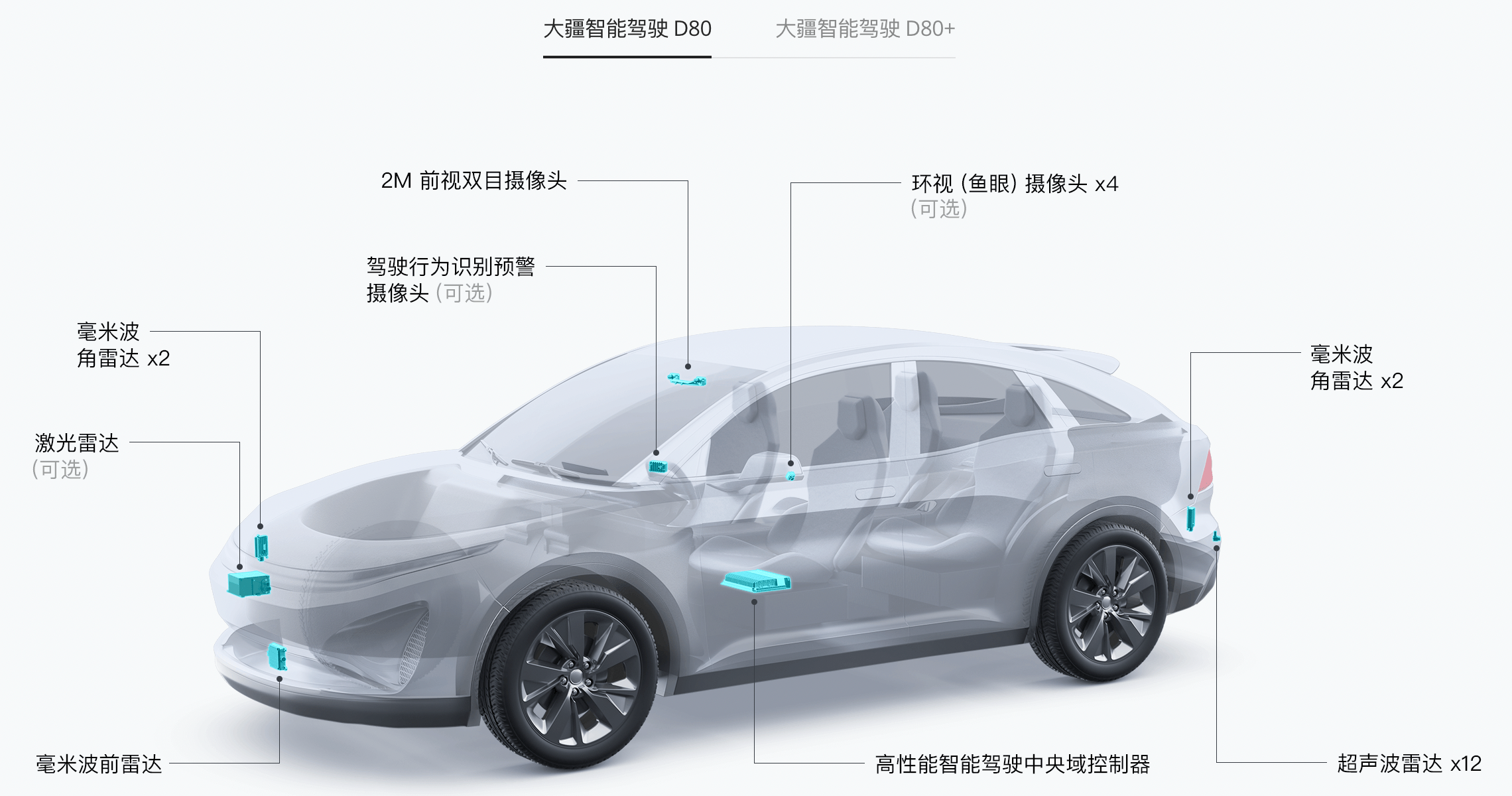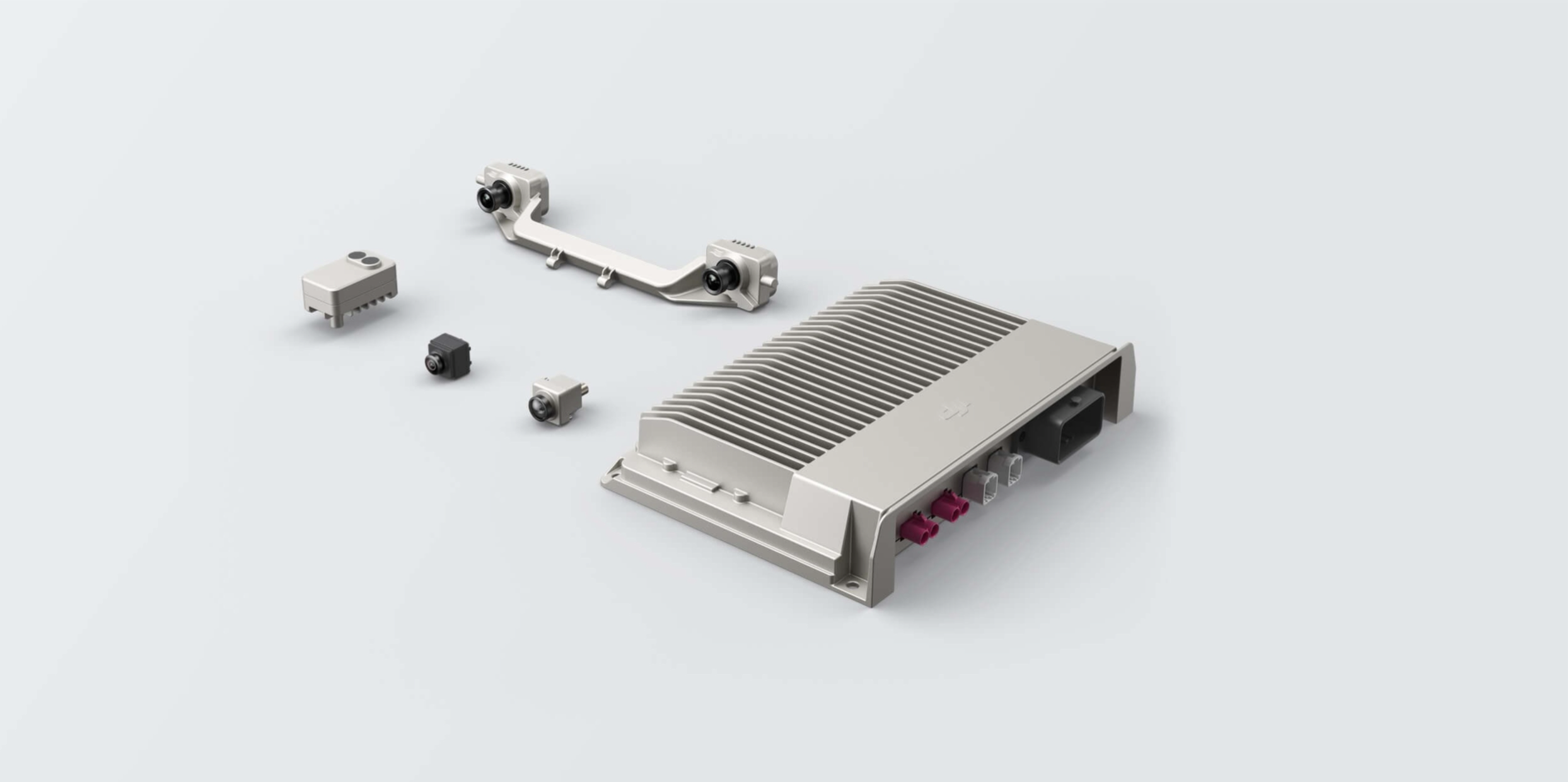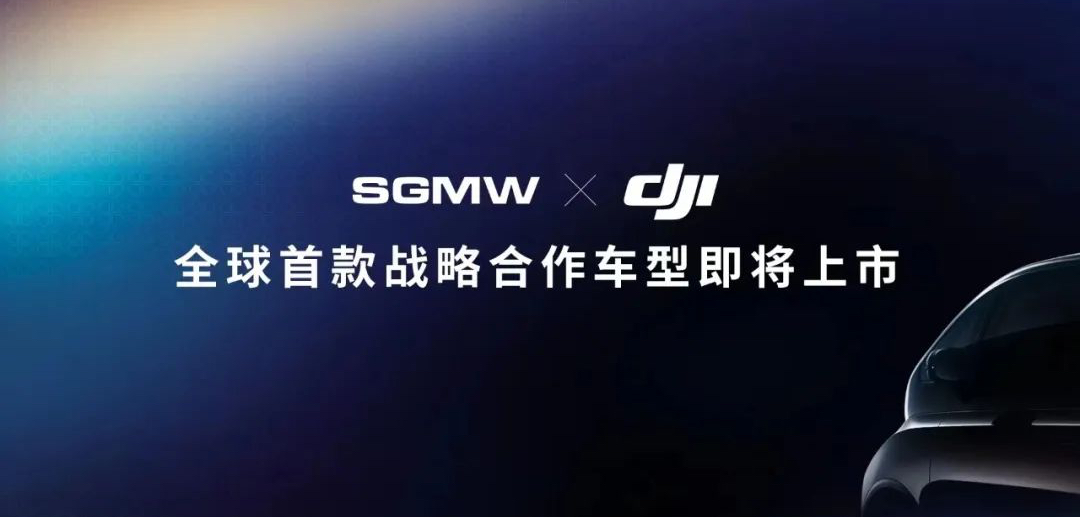On June 9th, DJI Car has officially announced that SAIC-GM-Wuling will become the world’s first car manufacturer to implement DJI Car’s intelligent driving system.
According to the official announcement poster, the first model equipped with DJI Car’s intelligent driving system is likely to be the KiWi EV. Based on the depth and scale of the cooperation between the two parties, the possibility of other SAIC-GM-Wuling models carrying DJI Car’s driving system in the future is also very high.
Although we all know that DJI has long entered the automotive field and become the first domestic technology company to put laser radar into mass production on cars, DJI is rarely heard of in the industry. So how is DJI Car’s intelligent driving ability? What kind of impact can it have on the industry?
Let’s start by talking about the products.
SAIC-GM-Wuling is equipped with DJI Car’s D80/D80+ assisted driving system, which is an intelligent driving system targeted to L2+ level. The specific perception hardware of this assisted driving system is shown in the figure below.

That’s right, DJI Car also uses binocular stereo perception route.
Binocular stereo perception can not only recognize and locate dynamic, static targets and road elements, but also obtain depth information of key point cloud of any obstacles, effectively reducing the miss detection rate.

At the same time, DJI Car’s binocular stereo visual perception system adopts online self-calibration technology, which can effectively avoid the perception performance degradation caused by baseline changes caused by environmental factors such as temperature change and vibration, making the product more stable and reliable.
According to “High-Tech Intelligent Connected Vehicles” data, in 2021, the number of passenger cars equipped with binocular stereo perception scheme (excluding imports and exports) in the Chinese market reached 223,900 units, a year-on-year increase of 13.54%. In the intelligent driving competition, binocular stereo perception is a niche solution.
However, with the cooperation between DJI and SAIC-GM-Wuling, the market share of binocular stereo solution will gradually increase. Just like the slogan announced by both parties, their cooperation can “popularize” intelligent driving.
Currently, car companies that insist on adopting binocular stereo perception solutions in the market include Mercedes-Benz, Subaru, etc. The main suppliers are Veoneer, Foresight, etc.
Veoneer is the supplier of Mercedes-Benz L3 Drive Pilot, and Foresight is from Israel. Its products include QuadSight four-eyed perception technology, and the so-called “four eyes” is to add a pair of infrared cameras based on binocular stereo perception to enhance performance in night and bad weather conditions.
 # Da-Jiang Innovations (DJI) as a cross-domain technology company, needs an opportunity to enter the track of the smart home industry.
# Da-Jiang Innovations (DJI) as a cross-domain technology company, needs an opportunity to enter the track of the smart home industry.
If the cooperation with Porsche China to supply core components tells us that DJI has the ability to supply core components, then the mass production of D80 semi-autonomous driving perception system will be the proof of DJI’s capability to make a name for themselves in the smart home industry.
Meanwhile, in the past, mid-to-low-end car models were often unable to equip advanced driver-assistance systems due to cost issues. However, the cooperation between DJI and SAIC-GM-Wuling enables advanced driver-assistance systems to be embedded in more cost-effective products, which facilitates a wider usage of this feature and enables more users to experience it.
This article is a translation by ChatGPT of a Chinese report from 42HOW. If you have any questions about it, please email bd@42how.com.
